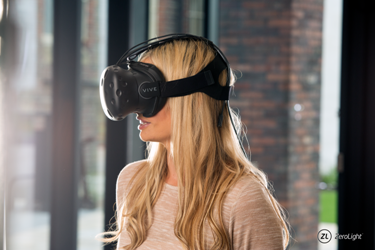Growing case for virtual and augmented reality in retail car sales, EU research shows

New research across Europe’s five largest economies polling 1,000 people who either own, or plan to buy a car, highlights the potential for immersive technologies in the automotive marketplace.
Commissioned by automotive visualisation specialist ZeroLight, the research addresses how technologies such as virtual and augmented reality (VR & AR) can be used to engage consumers “as part of their purchase journey”, says the company.
In total, 82% of respondents to the survey agree with the statement: ‘I would like to see, explore and configure a car to my preference at scale using immersive technology (VR/AR) prior to purchase, with just 5% disagreeing. Support for the statement is strong across all age ranges but peaks at a significantly high 90% in the 25-34 age bracket.
Commenting on the results, Joseph Artgole, associate marketing director at ZeroLight, says: “We know that customers demand digital-led experiences that offer them complete control over their purchase. What we see here is further validation of VR within the automotive retail space.
 Immersive technologies offer a perspective that is wholly unique to the medium. Seeing the vehicle in front of you to scale as you create it is truly compelling, driving value at any stage of the customer journey whilst delivering efficiencies for the brand.”
Immersive technologies offer a perspective that is wholly unique to the medium. Seeing the vehicle in front of you to scale as you create it is truly compelling, driving value at any stage of the customer journey whilst delivering efficiencies for the brand.”
The survey also finds that VR has the potential to pull customers into the dealership and make them engage more with the dealer’s portfolio.
Nearly two-thirds of the car-buying public across the five countries polled (65%) said they would be more likely to visit a dealership if they knew it had an immersive technology experience in place (e.g. a test drive using virtual reality or being able to view a car in the showroom using VR), while half of the sample (50%) claimed they would be more likely to explore more of the dealer’s range of cars if they knew a car dealership offered such an experience.

Joseph Artgole
In all, 78% of respondents agreed with the statement ‘I would expect to feel a greater sense of connection with a brand when using immersive technologies such as VR/AR versus other mediums.’ Visual quality and interactivity were highlighted the areas of focus for such experiences, with 48% of the sample overall emphasising their importance.
“Mediums such as VR & AR allow dealerships to add value and differentiate themselves within the marketplace, creating a new layer of discovery that’s helping to arrest the recent decline in visits from the public,” says Artgole. “If you’re going to deploy a commercial experience designed to be part of a customer journey, you need to allow the customer to naturally formulate an opinion. They need to be able to perceive the product with absolute clarity and react intuitively within the digital space.”
ZeroLight is an omnichannel visualisation platform for the automotive industry. It uses real-time 3D solutions for retail, online and asset creation.
Comment on this article below or via Twitter @IoTGN
